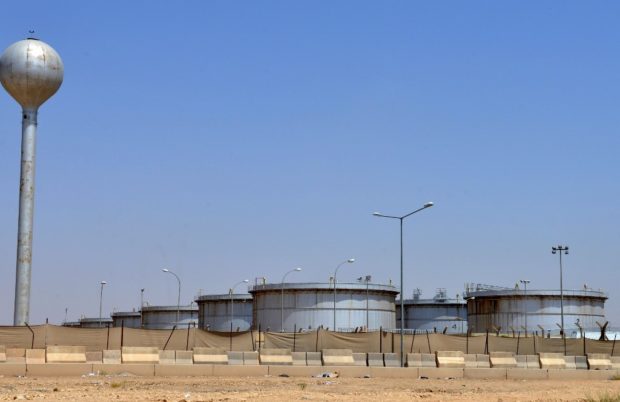Saudi Arabia approves listing of energy giant Aramco

A picture taken on September 15, 2019 shows an Aramco oil facility at the edge of the Saudi capital Riyadh. AFP
RIYADH — Saudi regulators on Sunday approved state energy giant Aramco’s request to make its stock market debut, firing the starting gun on the highly anticipated offering which could be the world’s largest.
The announcement paves the way for a domestic stock listing of Aramco, with share trading expected to begin in December, while its plans to launch on an international bourse remain unclear.
The listing of the world’s most profitable company forms the linchpin of Crown Prince Mohammed bin Salman’s ambitious plans to overhaul the oil-reliant economy, with tens of billions of dollars needed to fund megaprojects and new industries.
The Capital Markets Authority “has issued its resolution approving the Saudi Arabian Oil Company (Saudi Aramco)… application for the registration and offering of part of its shares,” the regulator said in a statement.
Sources close to the initial public offering (IPO) have told AFP that Aramco is expected to sell a total of five percent on two exchanges, with a first listing of two percent on the Tadawul Saudi bourse in December.
That would be followed next year by a three percent listing on an overseas exchange, which has yet to be picked, they said in recent days.
‘Integral component’
First suggested by Prince Mohammed in 2016, the IPO was delayed several times reportedly due to his dissatisfaction with the valuation of the firm, which fell short of the hoped for $2 trillion.
Aramco was expected to launch the first part of a two-stage IPO in October.
Last week, Energy Intelligence cited sources as saying they expect the Saudis to settle on a valuation of $1.6 trillion to $1.7 trillion for the firm.
If confirmed, that would imply the kingdom is ready to accept a compromise of less than the $2 trillion that the crown prince has long insisted the state oil giant is worth.
It remains to be seen whether Saudi authorities are able to find “a compromise between the crown prince’s stated preference and market realities in their valuation of Aramco,” said Kristian Ulrichsen, a fellow at Rice University’s Baker Institute in the United States.
“As the process has been delayed repeatedly and built up as such an integral component of the crown prince’s plan to transform Saudi Arabia, international investors will pay very close attention to how Aramco performs on the domestic exchange,” Ulrichsen told AFP.
Aramco, which pumps around 10 percent of the world’s oil, is the most profitable company globally and is seen as the kingdom’s crown jewel and the backbone of its economic and social stability.
Saudi Arabia has boosted efforts to woo investors to the long-awaited stock market debut by announcing an annual dividend of $75 billion, according to the company’s website.
Riyadh is also reportedly seeking to get wealthy Saudi families to buy a stake in the company while some Saudi commentators have sought to promote investment in the stock as a patriotic duty.
However, Aramco executives have encountered scepticism among institutional investors in London and New York on questions about the firm’s transparency, governance practices and targeted valuation, sources have told AFP.
“An important function of the domestic IPO is to project confidence in the company towards the international market, but doing it domestically encounters no meaningful obstacle, comparable to doing an international listing,” said Cinzia Bianco, Gulf research fellow at the European Council on Foreign Relations.
“It allows Prince Mohammed to show he keeps his promises and gets things done, another step to reassure international investors that the IPO will happen after all,” Bianco said.